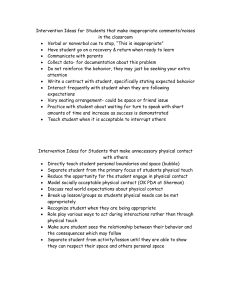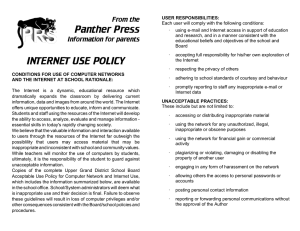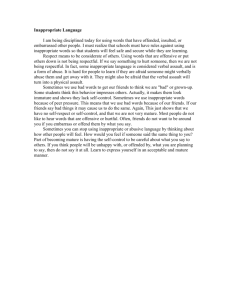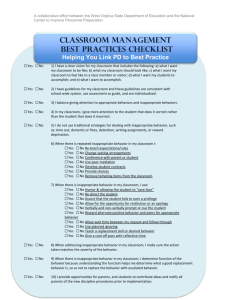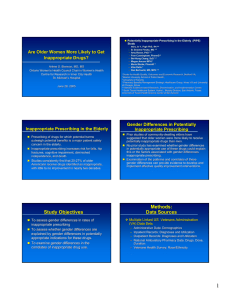Faculty Resolution Adopted February 24, 2003
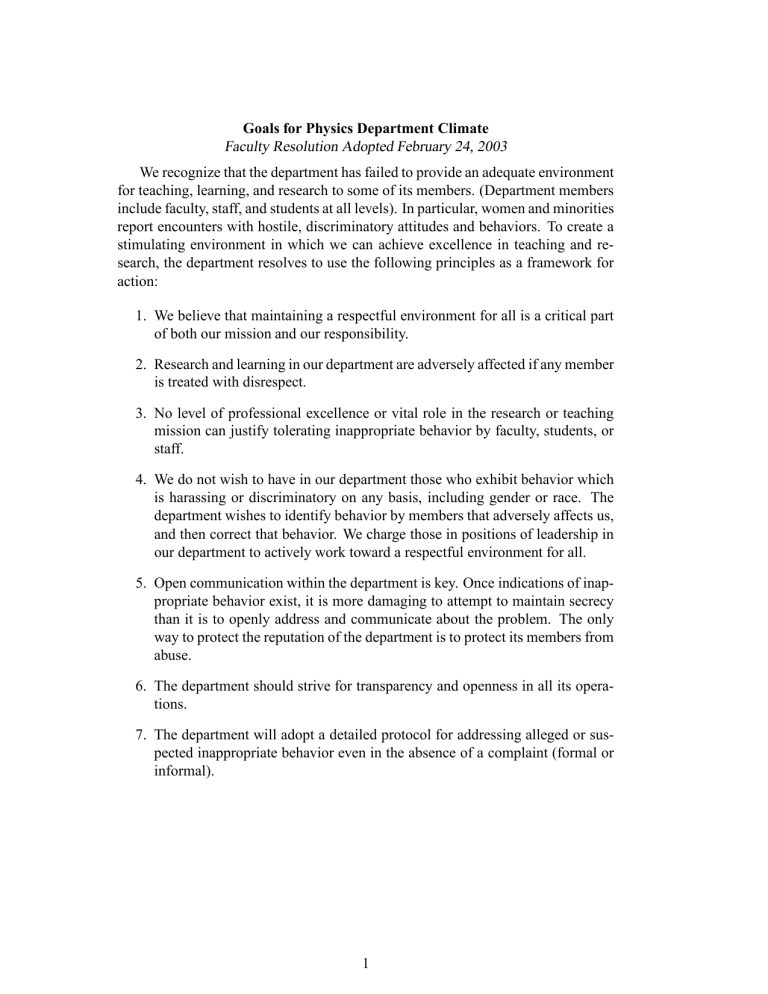
Goals for Physics Department Climate
Faculty Resolution Adopted February 24, 2003
We recognize that the department has failed to provide an adequate environment for teaching, learning, and research to some of its members. (Department members include faculty, staff, and students at all levels). In particular, women and minorities report encounters with hostile, discriminatory attitudes and behaviors. To create a stimulating environment in which we can achieve excellence in teaching and research, the department resolves to use the following principles as a framework for action:
1. We believe that maintaining a respectful environment for all is a critical part of both our mission and our responsibility.
2. Research and learning in our department are adversely affected if any member is treated with disrespect.
3. No level of professional excellence or vital role in the research or teaching mission can justify tolerating inappropriate behavior by faculty, students, or staff.
4. We do not wish to have in our department those who exhibit behavior which is harassing or discriminatory on any basis, including gender or race. The department wishes to identify behavior by members that adversely affects us, and then correct that behavior. We charge those in positions of leadership in our department to actively work toward a respectful environment for all.
5. Open communication within the department is key. Once indications of inappropriate behavior exist, it is more damaging to attempt to maintain secrecy than it is to openly address and communicate about the problem. The only way to protect the reputation of the department is to protect its members from abuse.
6. The department should strive for transparency and openness in all its operations.
7. The department will adopt a detailed protocol for addressing alleged or suspected inappropriate behavior even in the absence of a complaint (formal or informal).
1
Physics Department Policy on Behavior
Faculty Resolution Adopted February 24, 2003
1. We will strive to behave in a manner which will not be interpreted as physically threatening or inappropriate in a professional environment. When interacting with someone over whose career and/or education we have influence, we cannot expect that person to set the boundaries of appropriate behavior.
The responsibility for maintaining appropriate behavior rests with the person having highest authority. For instance, in a faculty-student interaction, it is not sufficient for a faculty member to assume that he/she is behaving correctly so long as the student does not complain. We will ask ourselves if we would be comfortable having our words or actions with the student made public. If not, we will think carefully whether our rapport with the student is sufficient that our interaction will not be mis-construed.
2. Faculty will make every effort to see that men and women are treated equitably in the classroom and laboratory. We will make no presumption of physics ability in a student based on the gender, race, or national origin of the student. We will attempt to include all members of the class in our discussion and instruction efforts. We will not let the gender or race of a student influence the advice, projects, or problems given to him or her. For instance, assignment of students to study groups should be done on a pedagogically sound basis independent of the physical attributes of the students involved.
3. As group or laboratory leaders, we are ultimately responsible for addressing the behavior of those faculty, students, and staff under our direction. We will use our positions of authority to hold harassers responsible for their behavior. We recognize that a functional group is one which acknowledges and solves its internal problems, not one which attempts to hide them. If there are indications that someone feels he or she has been harassed or discriminated against, even as a result of a simple misunderstanding, we will inquire personally or request that the Chair or Committee on Gender Relations mediate between the parties involved. This may be as simple as having a discussion with both sides to see if either, neither, or both, is behaving in a reasonable manner. We believe that when misunderstandings and miscommunications, or even incidents of thoughtless disrespect, are discussed early and often, we are able to keep more egregious misunderstandings and insensitivities from occurring.
2
